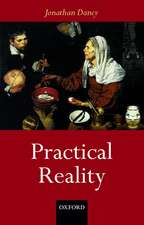Machiavelli's New Modes and Orders: A Study of the Discourses on Livy
Autor Harvey C. Mansfielden Limba Engleză Paperback – 5 aug 2001
Machiavelli's New Modes and Orders is the only full-length interpretive study on Machiavelli's controversial and ambiguous work, Discourses on Livy. These discourses, considered by some to be Machiavelli's most important work, are thoroughly explained in a chapter-by-chapter commentary by Harvey C. Mansfield, one of the world's foremost interpreters of this remarkable philosopher.
Mansfield's aim is to discern Machiavelli's intention in writing the book: he argues that Machiavelli wanted to introduce new modes and orders in political philosophy in order to make himself the founder of modern politics. Mansfield maintains that Machiavelli deliberately concealed part of his intentions so that only the most perceptive reader could see beneath the surface of the text and understand the whole of his book. Previously out of print, Mansfield's penetrating study brings to light the hidden thoughts lurking in the details of the Discourses on Livy to inform and challenge its readers at every step along the way.
Mansfield's aim is to discern Machiavelli's intention in writing the book: he argues that Machiavelli wanted to introduce new modes and orders in political philosophy in order to make himself the founder of modern politics. Mansfield maintains that Machiavelli deliberately concealed part of his intentions so that only the most perceptive reader could see beneath the surface of the text and understand the whole of his book. Previously out of print, Mansfield's penetrating study brings to light the hidden thoughts lurking in the details of the Discourses on Livy to inform and challenge its readers at every step along the way.
Preț: 326.58 lei
Nou
Puncte Express: 490
Preț estimativ în valută:
62.49€ • 68.09$ • 52.66£
62.49€ • 68.09$ • 52.66£
Carte tipărită la comandă
Livrare economică 23 aprilie-07 mai
Preluare comenzi: 021 569.72.76
Specificații
ISBN-13: 9780226503707
ISBN-10: 0226503704
Pagini: 460
Dimensiuni: 152 x 229 x 30 mm
Greutate: 0.62 kg
Ediția:1
Editura: University of Chicago Press
Colecția University of Chicago Press
ISBN-10: 0226503704
Pagini: 460
Dimensiuni: 152 x 229 x 30 mm
Greutate: 0.62 kg
Ediția:1
Editura: University of Chicago Press
Colecția University of Chicago Press
Notă biografică
Harvey C. Mansfield is the William R. Kenan Jr. Professor of Government at Harvard University. He is the author of Machiavelli's Virtue and has translated The Prince, Discourses on Livy (with Nathan Tarcov), and Alexis de Tocqueville's Democracy in America (with Delba Winthrop), all published by the University of Chicago Press.
Cuprins
Preface
Acknowledgments
Abbreviations
Machiavelli's Dedicatory Letter
Book I
Introduction
1. The Building of Cities
2. The Ordering of Regimes
3. Founders and Their Reputation
4. The Use of Religion
5. Living under a Prince
6. The Third King
7. The Tyranny of the New Prince
8. A Grateful People
9. The Dictator and the Decemvirate
10. Fear and Glory in the Multitude
11. Conclusion
Book II
Introduction
1. How Rome Acquired Its Empire
2. The Cause of Rome's Subjection
3. The Beginnings of Modernity
4. The Modern Army
5. False Opinions
6. Reasons or Causes
7. The Passions of Idleness
8. The Captain's Free Commission
Book III
Introduction
1. The Founder-Captain
2. Virtue and the Multitude
3. Machiavelli's Strategy
Index
Acknowledgments
Abbreviations
Machiavelli's Dedicatory Letter
Book I
Introduction
1. The Building of Cities
2. The Ordering of Regimes
3. Founders and Their Reputation
4. The Use of Religion
5. Living under a Prince
6. The Third King
7. The Tyranny of the New Prince
8. A Grateful People
9. The Dictator and the Decemvirate
10. Fear and Glory in the Multitude
11. Conclusion
Book II
Introduction
1. How Rome Acquired Its Empire
2. The Cause of Rome's Subjection
3. The Beginnings of Modernity
4. The Modern Army
5. False Opinions
6. Reasons or Causes
7. The Passions of Idleness
8. The Captain's Free Commission
Book III
Introduction
1. The Founder-Captain
2. Virtue and the Multitude
3. Machiavelli's Strategy
Index















